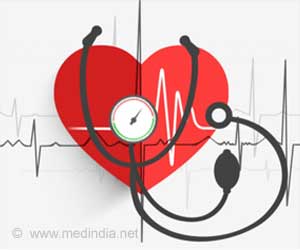Commonly used blood pressure medications - angiotensin-converting enzyme inhibitors (ACEIs) and angiotensin receptor blockers (ARBs) - are equally effective at controlling high blood pressure, according to a report by the Agency for Healthcare Research and Quality, part of the U.S. Department of Health and Human Services.
The report, which analyzed published results from 61 studies, also found that ACEIs are slightly more likely than ARBs to cause a harmless but persistent dry cough. A summary of the report will be posted on-line in the Annals of Internal Medicine.Authors of the report also said that more research is needed to learn how ACEIs and ARBs may differ when it comes to longer-term benefits and harms.
The AHRQ-funded study, completed by the Agency’s Duke University Evidence-based Practice Center in Durham, N.C., compared both the benefits and harms of ACEIs and ARBs. Both classes of drugs control blood pressure effectively by targeting a key hormone that helps regulate blood pressure. The AHRQ-funded study did not include other blood pressure treatments such as diuretics or beta blockers.
The reports revealed that ACEIs and ARBs are equally effective at controlling blood pressure.
ACEIs are slightly more likely to ARBs causing a harmless but persistent and dry cough. In studies of patients in everyday clinical settings, a dry cough was reported by about 1.7 percent of patients who took ACEIs and about 0.6 percent who took ARBs. Patients who took ACEIs in clinical trials were slightly more likely than patients who took ARBs to withdraw from the studies.
They also found that there are no consistently apparent differences between ACEIs and ARBs when it comes to impacting blood fats known as lipids, managing or slowing the progression of diabetes, controlling renal disease, or impacting heart function.
Advertisement
"An enormous number of Americans have high blood pressure, and we need to provide them with the best information possible about their medications’ potential benefits and harms,” said the Agency for Healthcare Research and Quality, Director Carolyn M. Clancy, M.D.
Advertisement
The summary of the study was published on-line in the Annals of Internal Medicine.
Source-ANI
SRM /B











